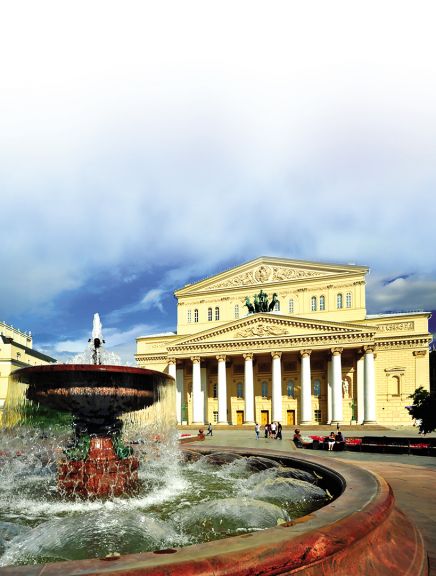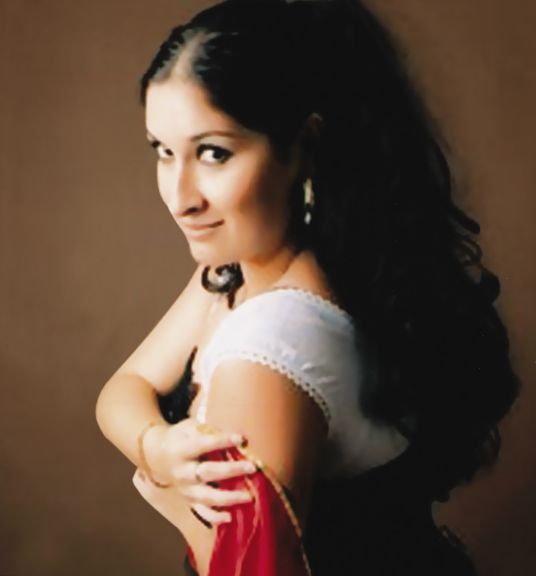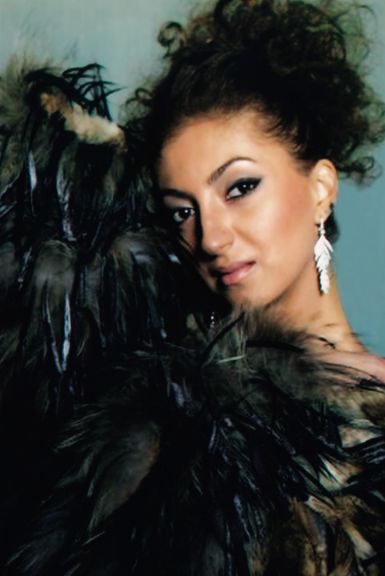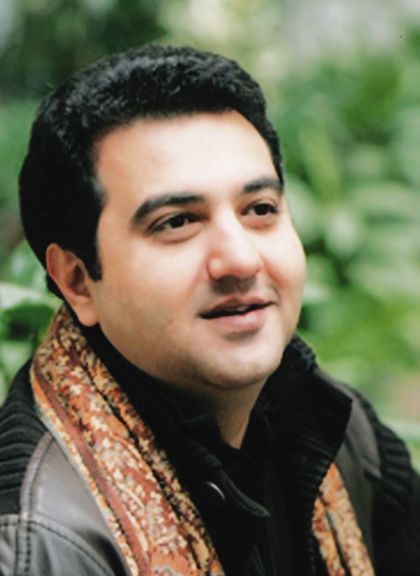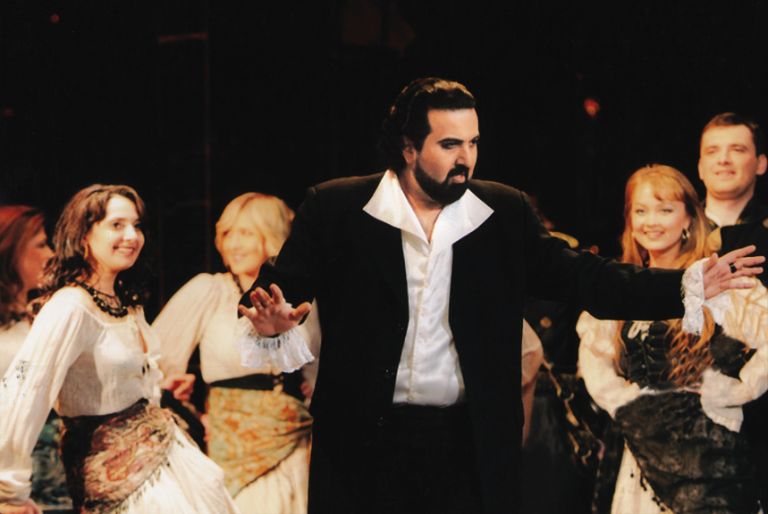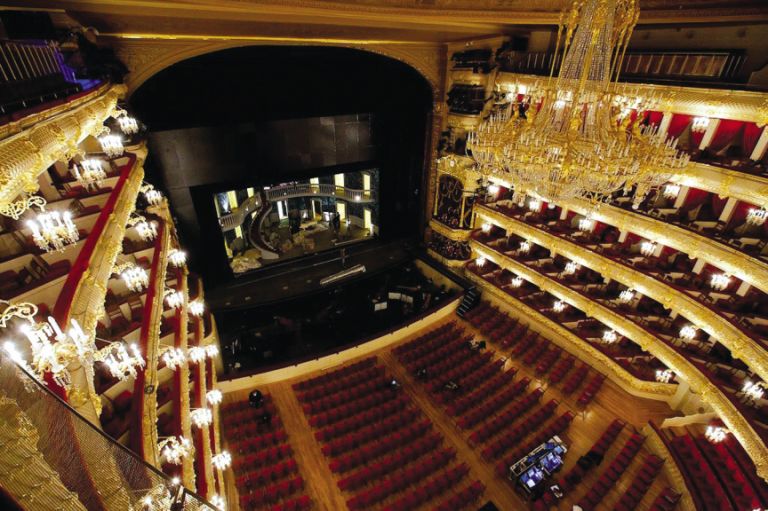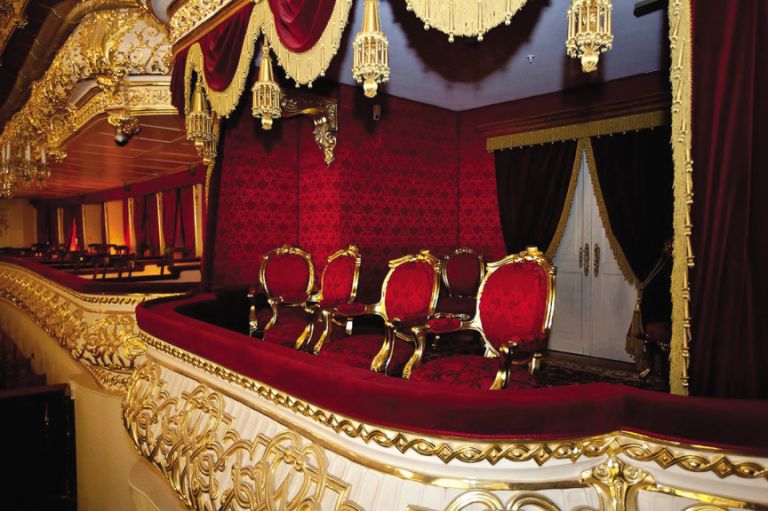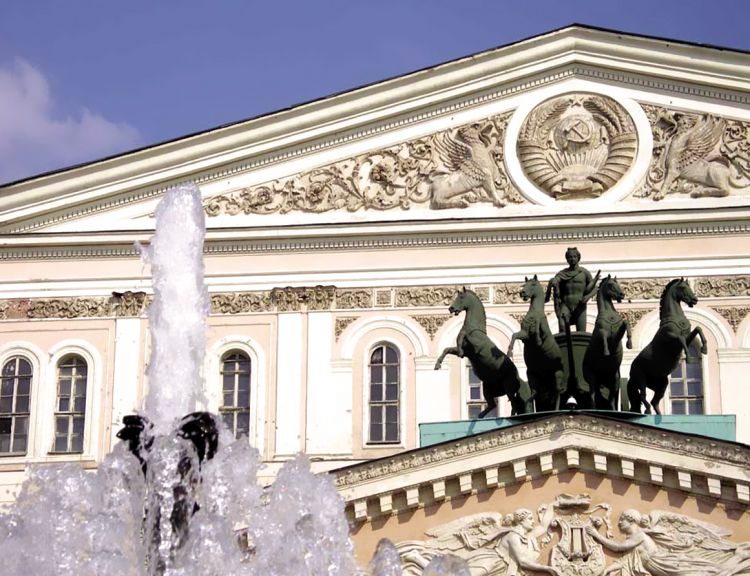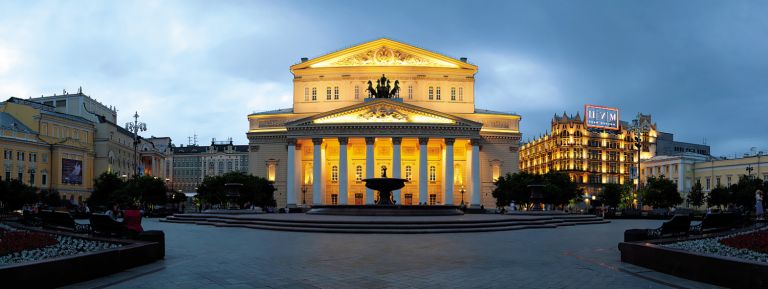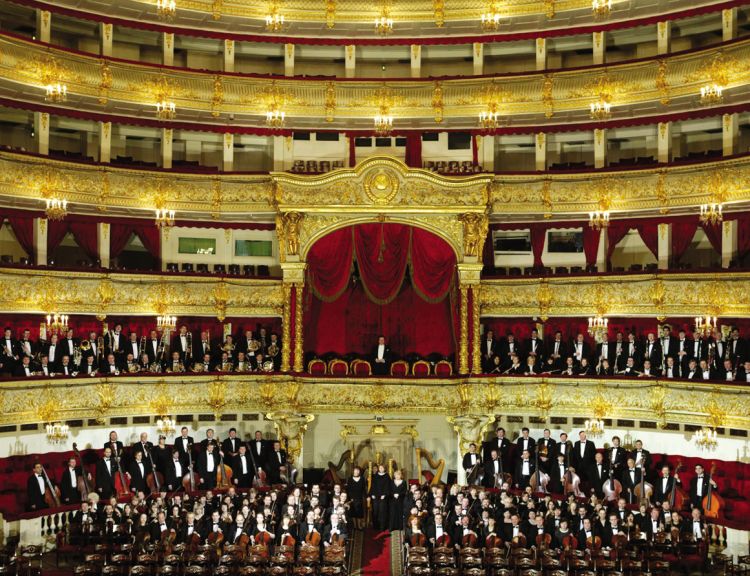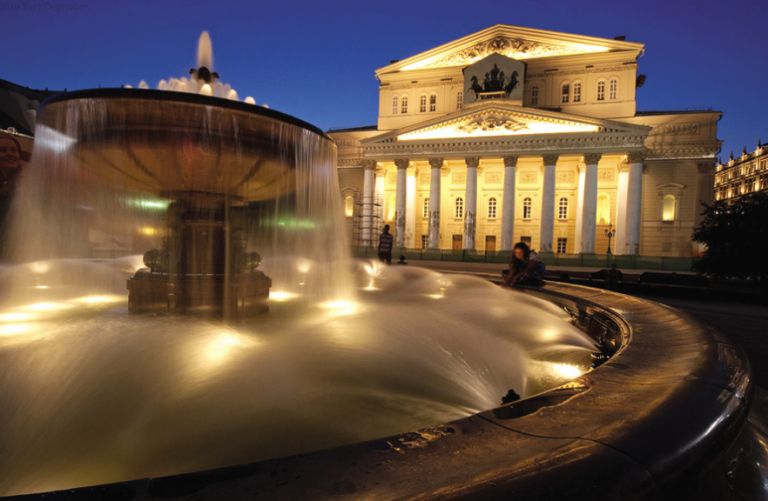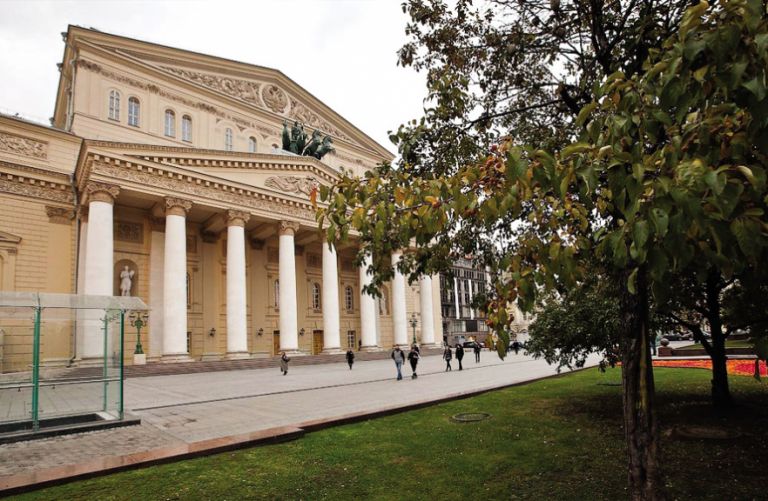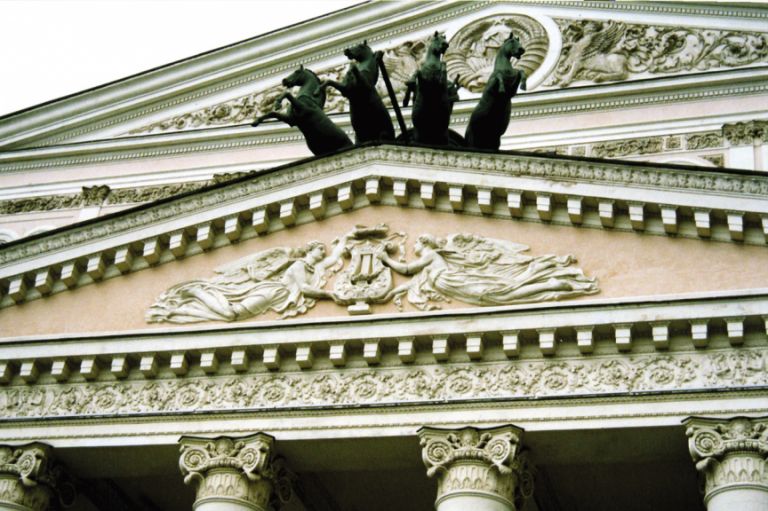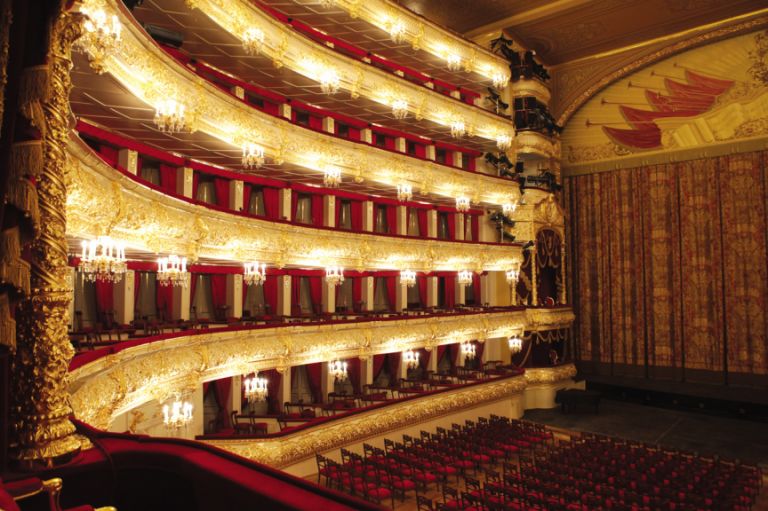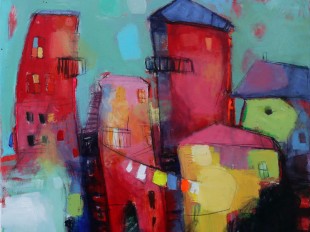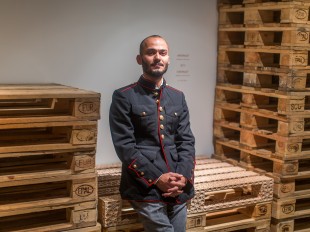Tchaikovsky was once a guest in the house of the singer Yelizaveta Andreyevna Lavrovskaya. They were talking about opera and Yelizaveta suggested that Pyotr Ilyich compose an opera based on Pushin’s ‘Eugene Onegin’.
It‘s worth thinking carefully about, look, what a poetic theme! – added Rahmanov, by origin a Caucasian Tatar, a family friend of the Lavrovskys.
By the way, this conversation took place before the end of the 1870s.
So that was that… Now let’s move on to another issue. I’d like to draw your attention to the following lines taken from the book Russian Ballet Theatre at the Beginning of the 20th century: Choreographers by the art critic Professor V. Krasovskaya, from Saint Petersburg:
V.P.Rahmanov, the dancer-choreographer, was not in the forefront of events in ballet in 1905, because he had self-respect. He was tied in with the revolutionary movement. On 31 July 1907 Telyakovsky (then CEO of the Empire Theatre office in Moscow) wrote to Krupensky that he had a secret flat where leaflets were printed on his printing machines…
…Of course, among all these facts one thing was most interesting for me: I wondered, whether the Lavrovsky’s friend Rahmanov, originally a Caucasian Tatar (by which was meant Caucasian Azerbaijani) was related to the dancer V. P. Rahmanov. The best way to find out was to send a letter to Saint Petersburg.
…The reply I got from Professor Vera Krasovskaya was key. She wrote:
Tracking the Tatars
Vladimir Rahmanov, the choreographer you’re interested in, was born in Perm in 1870. In about the same year the Rahmanovs moved to Moscow. Vladimir studied at the Music Gymnasium and was a soloist at the Bolshoi Theatre, the Marinsky Theatre in Petersburg and again at the Bolshoi. Marius Petipa, a famous ballet-master of the time, influenced him greatly. The talented dancer performed in ballets including: Korsar, Les Sylphides, Don Quixote, The Pharaoh’s Daughter, The Magic Mirror, The Nutcracker and Swan Lake, as well as staging plays. As to his origins, he was generally described as Vladimir Rahmanov, Russian choreographer. There was some talk that his father, Pasha Rahmanov, was a Caucasian Tatar. You should go to Moscow and Saint Petersburg and look at the archive materials yourself...…The search was on. I had to follow the professor’s advice. I was in the Bolshoi and Bakhrushin Theatre Museums and the Russia State Literature and Art Archive, as well as in the Marinsky Theatre Museum in Saint Petersburg. With good results…
…Yes, Volodya’s [diminutive of Vladimir – ed.] father, Pasha Rahmanov was Azerbaijani. He was born in Ganja. He went to Russia in the mid-19th century, graduating from the gymnasium there and working as a lawyer in Perm before moving to Moscow. He was an inspector in the office of Moscow’s Empire Theatre. There he befriended the progressive-minded intellectuals of the period as well as Tchaikovsky and the famous singer Yelizaveta Lavrovskaya. Members of the art world were often guests of the Rahmanovs. Volodya, brought up in such surroundings, could not remain indifferent.
Rahmanov senior’s documents recorded his nationality as Tatar, he was one of hundreds of Tatars who acquired Russian citizenship. This explains why Rahmanov junior had not appeared in our art history as an Azerbaijani choreographer and his work had not been studied here.
We mentioned that choreographer Vladimir Rahmanov was involved in the revolution of 1905. Perhaps because of these activities he had to change his place of his work, trying theatres in either Petersburg or Moscow. He lived until 1919 and was probably killed by terrorists. There should be a thorough study of the life and art of the first Azerbaijani choreographer!
Mammad Orujov and Mammadagha Zeynalov - musicians
There are many similarities in the lives of two men who encountered many difficulties in their life and who became friends. Both were born and brought up in Baku, studied at Music School, worked with the Army symphony orchestra in WWII, later studied in the capital and competed successfully to enter the orchestra of the Moscow State Academic Bolshoi Theatre.Both Mammad Orujov and Mammadagha Zeynalov earned good reputations with the 250-member orchestra and were appreciated as talented instrumentalists by its artistic director.
There can be little doubt either that the Bolshoi Theatre’s bicentenary left an indelible trace in their souls. In fact they were made Honoured Artists of the Russia Federation, along with many of their colleagues.
When reading this last piece of news I immediately remembered my first meeting with them. I opened my notebook and looked through some notes in it: Short conversation at the hotel Abkhazia, Sukhumi, August 17, 1975…
To tell the truth I had plenty of information about both men. And I knew that one other Azerbaijani musician – French horn player Anvar Pashayev – had worked at the Bolshoi. After meeting them the acquaintance developed and we often went on trips to the Black Sea. I learned about their lives and work and they learned as much as possible about Azerbaijan.
Orujov, oboist, and Zeynalov, trombonist, are now veterans of the ensemble. Both dedicated thirty years of their lives to the creative work they love. Thirty years! This is the complex, difficult and honourable life of two musicians.
Maestro’s advice
It seems like only yesterday that I entered the Bolshoi Theatre for the first time. I never imagined in my youth that one day I would be a professional musician and work with such a team. After leaving school I intended to study chemistry-biology. It’s true that I studied at music school until the age of seventeen and my favourite teacher Kovkeb khanim Safaraliyeva had taught me the secrets of playing the piano, says Orujov, recalling his start, but chance determined my future life: for the great composer Uzeyir Hajibeyli organized a small competition to listen to me, along with several other young people. I will never forget that day, that hour, that moment in my life, I was very excited. As well as the piano, I also played a small piece on the oboe. Uzeyir bey kindly put his hand on my shoulder and said: ‘My son, you are a born oboe player. Continue your life with this instrument. You won’t regret it…’ But it was impossible to follow the great mans advice immediately. The fascists suddenly invaded the USSR. We had to postpone our dreams, like thousands of other young people. We volunteered for the front.Mammadagha Zeynalov continued his friend’s thought.
But after the victory we had to think about an education. Mammad passed the entrance exams and entered the oboe class at the Tchaikovsky Moscow State Conservatoire. Then there was a serious test – a competitive examination. Successful in this, too, my friend joined the Bolshoi Theatre orchestra. His name has now been among its instrumentalists for thirty years.
The proverb goes, ‘Where there is a will there is a way’. And Mammadagha Zeynalov achieved his goal overcoming every obstacle by his diligence, innate talent and enthusiasm.
Mammadagha is also a post-war graduate of Moscow Conservatoire. His road and mine through life have almost been the same.
With these words, Mammad Orujov smiled over at his friend.
Our compatriots have always led with successful interpretations of the most difficult parts: – Ruslan and Ludmila, Prince Igor, Spartak, Swan Lake, Path of Thunder, Faust, Love Legend, Eugene Onegin, Rigoletto, Aida and so on. The conductor M. Pazovsky saw Orujov as a real godsend to the Bolshoi. Alexander Melik-Pashayev, for long the theatre’s chief conductor, appreciated Mammad’s solo performance in Aida as the standard performance. Many flattering reviews supported this assessment. The same may be said of his colleague. When the theatre was on tour in Milan, the local newspapers hailed the orchestra as a miracle and mentioned trombonist Mammadagha Zeynalov, among the instrumentalist magicians.
If we have travelled back into the history of the Bolshoi Theatre to tell of the Azerbaijani performers of the past, then I must have a few words about those who are with that legendary company now. Talented vocalists Dinara Aliyeva, Elchin Azizov and Chinara Alizadeh, who is a prima ballerina and laureate of international competitions, are working to add pages to the chronicle of the oldest and greatest arts centre. Here are some notes about each of them.
Dinara Aliyeva - singer
I was a guest in Muslum Maqomayev’s house in May 2008. I was there to visit my artiste friend because he was ill. In the three days we were together we talked about many things, modern art, mastering performance… And we talked about Dinara Aliyeva. The maestro expressed his short, frank opinion about the young vocalist:Dinara Aliyeva has a wonderful voice and perfect stage culture. I listen to her with great pleasure. She has not shown her great talent to its full yet. But it will not be long before she is talked about.
These words have been more than confirmed: Dinara Aliyeva, of unique voice, wide range, high performance culture and specific performance technique, became truly famous shortly afterwards and has countless fans of her performances on the world’s great stages.
Let’s review the key moments on the difficult, creative path taking the young singer to the Bolshoi’s stage. She was already being invited to perform concert nights in Moscow and so the numbers wanting to see her in live performance were growing day by day. One concert was dedicated to the memory of the Russian singer Irina Arkhipova in the Great Hall of the Moscow Conservatoire in 2010 and world famous artistes were invited to perform. The young Azerbaijani vocalist was invited personally by the event’s artistic director, Victor Popov. The highlights of the programme were the Ave Marias of Schubert and Kassis.
Critics acclaim
Igor Koryabin, Moscow’s leading music theorist, said that the most significant event that night was the ‘discovery’ of the young and talented Dinara Aliyeva. Viktor Popov also wrote:Dinara Aliva is a shining ‘star’. Her strong, clear voice has a firm technical base and full tessitura range. I see her as a performer of strong roles on the opera stage. She finds the required colour at lyrical moments and applies the messa di voce to perfection. She lights the soul with her mastery of vocal culture.
Koryabin expanded:
Her performance of Ave Maria introduced us to a new Dinara Aliyeva. Her excellent rendition was the embodiment of traditional western performance in the classical operatic genre. Her chamber style was also very important. The intonation of any piece of music performed by Dinara Aliyeva is excellent.
Her Ave Maria, central to the repertoires of many famous musicians, was dressed in fresh, new clothes. Her beautiful, sweet, clear voice sent the audience into ecstasy. The art critic Fyodor Vyazemsky gave his impressions to camera:
It was as if an angel from heaven, no ordinary performer, was singing on stage. Our soul was enlightened. I’m sure every one of the audience left for home under the impression of Dinara Aliyeva’s wonderful voice. Her main quality is her deep feeling for the music. We were convinced that there was a mature, professional singer on the stage. Dinara Aliyeva’s art is a rare pearl. We must not only preserve this pearl but also coddle her. She sang works by classical composers: Bach, Gounod, Bizet just as the audience desired. And how she sang, it was unbelievable! In Maskanini’s aria she amazed everybody not only with the liveliness and elasticity of her voice, but also with her accuracy in high register.
The brightest star…
In all, the year 2010 was portentous for Dinara Aliyeva’s career. Her performance, led by Mikhail Pletnyov and accompanied by the Russian State Orchestra in the Bolshoi Hall of the Tchaikovsky Conservatoire, was unforgettable. We must also mention her great success at the Music of the Future concert held in Moscow and another of her concerts in Russia’s capital. Led by Dmitry Yurovsky and accompanied by the Russian National Philharmonic Orchestra, this was a new stage in both her career and in the work of the orchestra, according to art critic Vladimir Oivyn. He greatly appreciated the excellent soprano-voiced Dinara Aliyeva’s free and lady-like behaviour on the stage:Not everyone can appear before a demanding audience in a solo concert and satisfy all of them. To perform music only of the highest degree, with excellent technique and in unique manner is the basis of success. Dinara Aliyeva’s unprecedented success comes purely from that.
Another Moscow critic, Angelina Kamarova, shared her impressions about Dinara Aliyeva’s series of solo concerts in St Petersburg for the newspaper Vremya Novosti. She ended her voluminous review with these words:
In the embodiment of a gallery of characters, the singer proves not only her versatile artistry, but also unexampled vocal qualities. Dinara Aliyeva is the brightest star shining in the sky of Russia’s classical performers lately and we must confess this sincerely. Every passing day led her towards the highest reputation. The celebrated orchestras and outstanding artistes and musicians of Russia wish to work with her and allocate her a special place when organising concert programmes.
She has toured successfully to many foreign countries, giving solo concerts in Lyons (France), Prague and Monaco.
After her performance of Leonora in Verdi’s Il Trovatore at the Klagenfurt State Theatre in Austria, Andrejs Zagars, the Latvian director, went backstage to thank her:
I have seen Il Trovatore in many cities. It’s no secret… I have seen the true Verdi’s Leonora for the first time. I’m grateful to you and to my fortune!
After Prague, Aliyeva performed in Paris, Berlin and Vienna. She achieved her creative dream when she was engaged by the Academic Bolshoi Theatre as a soloist. No ordinary vocalist or ballet dancer is accepted there…
At home on the stage
As a star soloist of the Academic Bolshoi Theatre she visited Baku in January 2011 to sing Donna Elvira in Don Juan. And in April we saw her again, this time taking the lead in Il Trovatore.We met her after the latter performance and there before me was a very beautiful, intelligent young Azerbaijani woman. I expressed our pride in her work at the Bolshoi Theatre and her unprecedented success. She answered frankly that she understood the responsibility she bore as an Azerbaijani.
Born in Azerbaijan’s capital, Dinara graduated from the Baku Musical Academy in 2004. She was taught by the singer-teacher Khuraman Gasimova and was a soloist at the Azerbaijan State Academic Opera and Ballet Theatre from 2004-2006. In 2006 she attended a course with Professor Svetlana Nesterenko in Moscow, and had lessons with Montserrat Caballe and Elena Obraztsova. Her current repertoire is rich and colourful: Michaela (Carmen, Bizet), Musetta (La Boheme, Puccini), Magda (La Rondine, Puccini), Lauretta (Gianni Schicchi, Puccini), Margarita (Faust, Gounod), Tatiana (Eugene Onegin, Tchaikovsky), Marfa (The Tsar’s Bride, Rimsky-Korsakov).
Of herself she says:
I’m lucky that I was born into a family of musicians. My father, Fuad Aliyev, taught make-up at Azerbaijan State Art University but he had a taste for music; he played the piano well and sang when he had the opportunity. But my mother was a conductor and director of a children’s choir. My grandfather and grandmother were artistic, too. We would have many guests in our house. My father’s friends often got together, played, sang songs and had fun. They say that I began singing when I was 2. Then I went to music school for piano classes. When I was in the 8th grade I heard that they had opened vocal classes at the school. I attended often and liked them more than the piano, so I entered the vocal faculty at the Baku Music Academy. When I was studying for my Master’s degree, the legendary Italian singer Montserrat Caballe came to Baku and gave master classes. I went along. They warned me that Caballe had little time and was very tired, so I shouldn’t waste time and should sing a short aria. I sang Leonora’s aria from Il Trovatore. I finished singing. Suddenly there was loud applause. Although Caballe seemed tired, she revived and said aloud: ‘Miracle! It’s a real miracle!’ She hugged me and was very happy: ‘You have a golden voice. Why did you come here? You have no need. God begrudged you nothing.’ She declared that she would take me with her to Europe.
I couldn’t hold back my tears of excitement. However it proved to be impossible to go to Europe with her. Instead, I was immediately taken on a tour by Baku Theatre.
I can’t forget the help of great artistes in my creative life. I was preparing to go to the Maria Callas International Competition in Greece around the time I was just starting to work in the theatre. If it had not been for the late Muslim Magomayev, I wouldn’t have been able to afford to go. As soon as he heard about the problem, he immediately gave me material and moral support. As a result I was second in Greece. I’m sure that if the jury had been objective, I would have been first. Anyway, I appreciate it as my first serious award.
I was lucky to meet Elena Obraztsova in Moscow. On her recommendation I was given a contract for part-time work at the Bolshoi Theatre. My first role was as Liu in Turandot, in 2009. The theatre management were so pleased with my performance that they offered me full-time work. Of course it was difficult to be so far from Baku. At first, I missed it very much. But then…, I have to say that all my achievements are Azerbaijan’s success. At the same time, every achievement by any Azerbaijani in any sphere is, of course, mine too.
Elchin Azizov - singer
His has been a very interesting, somewhat strange, creative life. In his childhood he wanted to be a film producer. After leaving school Elchin entered the film production faculty at Azerbaijan State Culture and Art University. Then he joined Parni iz Baku (Guys from Baku) KVN (Russian: Klub Vesyólykh i Nakhódchivykh, ‘Club for the Comic and Creative’). Everyone in Azerbaijan knows these guys and Elchin Azizov contributed to that fame. His youth, from 1992-2001, was spent there. In those years, of course, he was seldom called upon to sing and nobody imagined that in the future he would be on the stage of the great theatre.Elchin was born in 1975 and was interested in art and the stage from childhood. It was no accident that he joined KVN, but singing was another matter. He did sing, and there was no doubt about the strength of his voice, however, he was 30 before he realized that his voice had something extra. He was advised to take it seriously and entered the summer academy of Salzburg’s Mozarteum University in 2005.
Recognising his talent and the wide range of his baritone, Galina Vishnevskaya invited Elchin to the Opera Centre where she was art director. Here he worked with the famous singer Badri Maisuradze to improve his performance. He made his debut as a vocalist singing Escamillo in the opera Carmen. All the staff of the Bolshoi Theatre watched the performance and they decided that Elchin Azizov was worthy of being taken on as a soloist. Thus, he has been a full-time member of the Bolshoi since 2008.
He was in Baku following the sudden death of his close friend Anar Mamedkhanov; we met and discussed creative issues.
Elchin said that he was going through a period of adaptation to the theatre but the staff there treated him well:
There is an old tradition here: everybody treats a diligent and decisive soloist with respect. At the same time there is strict discipline. Everyone has to obey the rules regardless of his/her fame, talent, or service to the theatre. I’m happy with this. Busy day-and-night, he has a full working schedule and rests only one day a week. He goes to the theatre for a couple of hours of training and then leaves for more training at the Opera Centre led by Galina Vishnevskaya. Asked, Do you still train with teacher? he answered,
Yes of course, and I´m not going to refuse. You know well that there is no limit to improvement.
Our compatriot is currently working hard on several roles and we are sure he will continue to delight opera-lovers and his unique singing will write new pages in the chronicle of the great theatre.
Chinara Alizade – ballerina
Chinara is still young and hasn’t embodied yet the difficult roles of many ballet productions. But since she arrived on the professional stage, she has proven her ability to be a winning ballerina.Historically, there have been no weak links at the Bolshoi. Regardless of what part of USSR the artist came from, if there was need of a great artiste, he/she was immediately taken on. The three Azerbaijani musicians we mentioned earlier came to the Bolshoi in the same way. And in the past our great vocalists Lutfiyar Imanov, Muslim Magomayev and Fidan Gasimova were also frequently invited to its stage.
Although Chinara is Azerbaijani, she was born and brought up in Moscow. Her father Rauf has lived there for a long time and her mother Gulnara went there from Azerbaijan.
Gulnara khanim wanted Chinara to be a ballerina. They tried to enrol her on a ballet course when she was four, but they were too late and she joined a figure-skating course instead. But a little later, her mother’s dream was realized. Chinara joined the Moskvich ballet class.
From 1995 she trained for four years at Natalya Nesterova’s Dancing Academy in the New Humanitarian University and continued at the Moscow State Choreography Academy. She was lucky to study under famous teachers there – Natalya Arkhipova and Ludmila Litavkina. She took first place and the gold medal at an international competition of ballet dancers and choreographers held in Moscow in 2005. The same year Chinara Alizade was invited to join the ballet company of the Bolshoi Theatre. Her mother cried with happiness. A gateway to a new life had opened for the young ballerina...
Chinara was offered the chance to dance in Tchaikovsky’s Swan Lake on her first day at the theatre. She prepared well under the leadership of teacher-trainer Marina Kondratyeva and danced with great success. A little later she took leading roles in Minkus’ La Bayadere and Adam’s Giselle. Now she has many fans looking forward to her appearances.
I was very pleased to see posters advertising Giselle at the Bolshoi Theatre when I was on holiday in Moscow in 2009; our compatriot was listed in the cast. Only just managing to get a ticket, I was a live witness of how she conquered hearts with her great skill.
She has since danced the leading roles in Giselle and Don Quixote in Baku. Of course her performance was greeted with a storm of applause and flowers. Cries of Bravo! Bravo, Chinara! rang round the hall.
And so there are now three Azerbaijanis among the artists coming to this great cultural centre every morning: singers Elchin Azizov and Dinara Aliyeva and ballerina Chinara Alizade.

